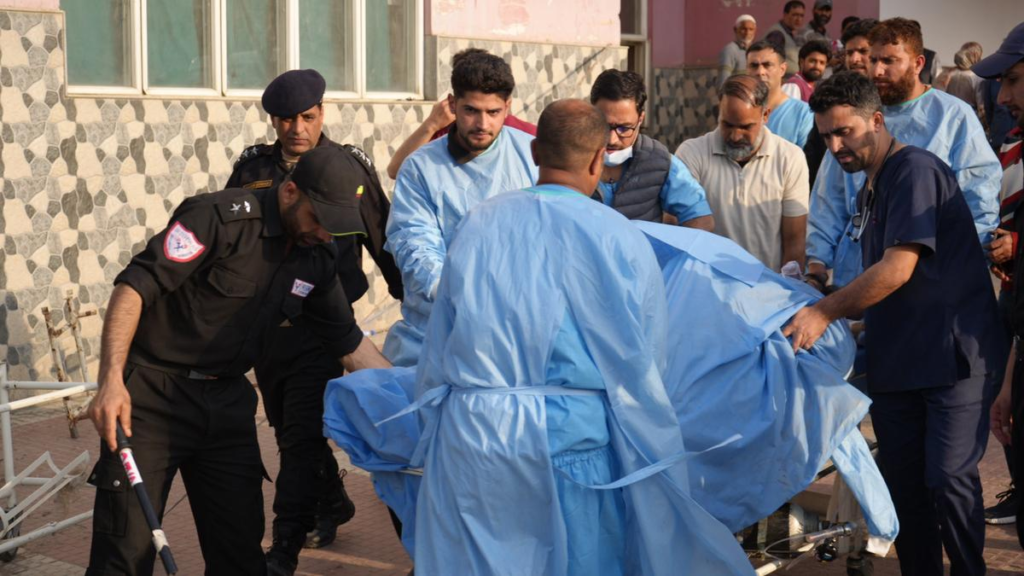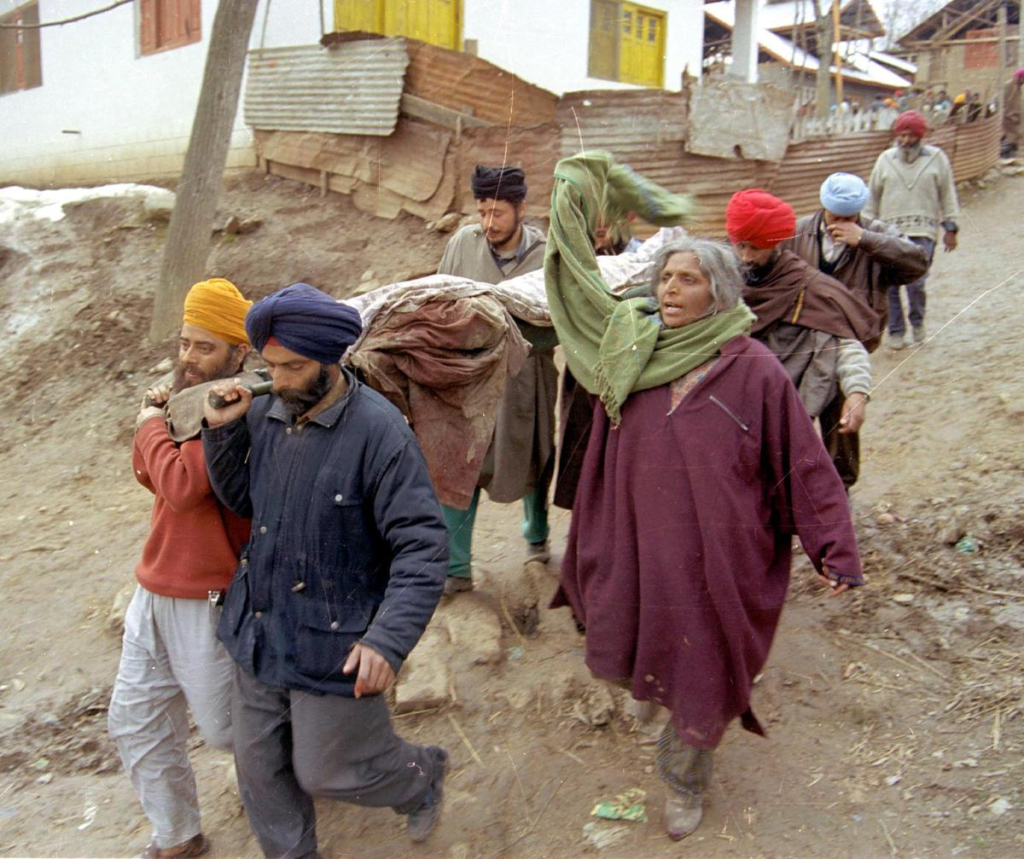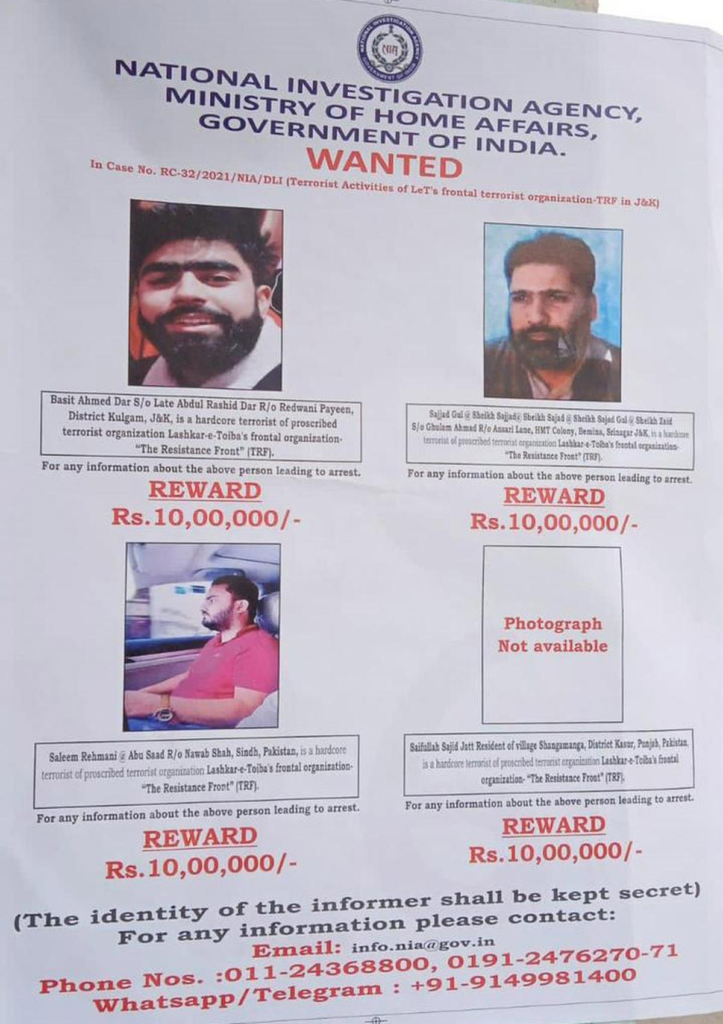Deadly Terror Attack in Kashmir 28 Killed
A horrific terrorist attack struck Baisaran Valley in Pahalgam, Jammu and Kashmir, on April 22, 2025, killing at least 28 people and injuring over 20.

The attack targeted tourists in a popular meadow, about 5 km from Pahalgam, known for its scenic beauty. Gunmen opened fire on a group of trekkers, leaving a trail of devastation in one of the deadliest attacks in the region in years.
What Happened?
Around midday, suspected militants emerged from dense forests and fired indiscriminately at tourists.
The victims included 24 Indian tourists from states like Karnataka, Kerala, Maharashtra, and Uttar Pradesh, two local Kashmiris, and two foreign nationals from Nepal and the UAE.

Among the dead were a 26-year-old Indian Navy officer and an Intelligence Bureau official. Survivors described chaos as bullets flew, with some running for miles to escape.
Security forces rushed to the scene, evacuating the wounded and launching a manhunt for the attackers. The area, accessible only by foot or horseback, was cordoned off.
Who Is Behind It?
The Resistance Front (TRF), a Pakistan-based offshoot of Lashkar-e-Taiba (LeT), claimed responsibility. TRF said the attack was in protest of India’s settlement policies, alleging over 85,000 “outsiders” were changing Kashmir’s demographics.

Intelligence reports point to Saifullah Kasuri, alias Khalid, a top LeT commander, as the mastermind, with two operatives from Pakistan-occupied Kashmir involved. Indian officials have blamed Pakistan for supporting such groups, a charge Pakistan denies.
Pakistani Defence Minister Khawaja Asif called the attack “home-grown,” dismissing any link to his country.
India’s Response
Prime Minister Narendra Modi cut short his Saudi Arabia visit to address the crisis. He vowed to bring the perpetrators to justice, calling the attack “heinous.”
Home Minister Amit Shah arrived in Srinagar for an emergency security meeting. Defence Minister Rajnath Singh promised a “loud and clear” response, targeting both the attackers and their backers.
The Jammu and Kashmir government announced ₹10 lakh for families of the deceased and aid for the injured. A region-wide shutdown and protests condemned the violence, with newspapers printing black front pages in solidarity.
Kashmir’s History of Terror
Kashmir has faced a separatist insurgency since 1989, fueled by tensions between India and Pakistan, who both claim the region.
The 2025 Pahalgam attack is the deadliest on civilians since the 2001 Jammu and Kashmir legislature bombing, which killed 35. Other major attacks include:
- 2000 Kashmir Massacre: 89-105 Hindu pilgrims killed in coordinated attacks; separatist militants blamed.
- 2008 Mumbai Attacks: 174 killed by LeT gunmen in a multi-day siege.
- 2016 Uri Attack: 19 soldiers killed; Jaish-e-Mohammed (JeM) suspected.
- 2017 Amarnath Attack: 8 pilgrims killed; LeT blamed.
- 2019 Pulwama Attack: 40 CRPF personnel killed by a JeM suicide bomber.
- 2024 Reasi Attack: 9 pilgrims killed; LeT-linked TRF initially claimed responsibility.
Global Condemnation
World leaders condemned the attack. U.S. President Donald Trump called it “deeply disturbing” and offered support. Russia’s Vladimir Putin, Italy’s Giorgia Meloni, and Saudi Arabia’s Mohammed bin Salman expressed solidarity. Pakistan’s foreign ministry voiced concern but denied involvement. Kashmir’s tourism, a key economic driver, faces setbacks as the attack dents the region’s image of improving stability.
Security forces are hunting the attackers, with joint army-police operations underway. The attack has raised fears of escalating India-Pakistan tensions, with some calling it an “act of war.”
Local leaders urged calm, emphasizing that such violence harms Kashmiris the most. The government faces pressure to strengthen security in tourist areas, especially after 3.5 million visitors flocked to Kashmir in 2024.


 ICCI invites Bangladesh to boost investment in Pakistan
ICCI invites Bangladesh to boost investment in Pakistan  US and Pakistan Seal New Trade Deal with Promises and Oil
US and Pakistan Seal New Trade Deal with Promises and Oil  India Set to Face Pakistan in WCL Semifinal
India Set to Face Pakistan in WCL Semifinal  Pakistan Joins WHO to Provide Free Cancer Medicine to Children
Pakistan Joins WHO to Provide Free Cancer Medicine to Children  Trump’s $21M USAID Claim for India Elections Never Existed
Trump’s $21M USAID Claim for India Elections Never Existed  Did India Strike Pakistan’s Nuclear Hub Kirana Hills?
Did India Strike Pakistan’s Nuclear Hub Kirana Hills?